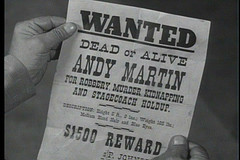 In San Antonio and other courts throughout Texas, many Mexican citizens take plea deals every day. Before 2010 the only requirement for non-U.S. citizens taking pleas was that the defendants must be warned that they may face deportation, removal from the country or denial of U.S. citizenship. However, on March 31, 2010, the United States Supreme Court filed its decision in Padilla v. Kentucky, 130 S. Ct. 1473 (2010) holding that “counsel must inform her client whether his plea carries a risk of deportation.” Padilla at 1486. “When the law is not succinct and straightforward…a criminal defense attorney need do no more than advise a noncitizen client that pending criminal charges may carry a risk of adverse immigration consequences. But when the deportation consequence is truly clear, as it was in this case, the duty to give correct advice is equally clear.” Padilla at 1483. This means that a defense attorney must adequately advise a non-U.S. citizen of how the plea may affect his or her status in this country.
In San Antonio and other courts throughout Texas, many Mexican citizens take plea deals every day. Before 2010 the only requirement for non-U.S. citizens taking pleas was that the defendants must be warned that they may face deportation, removal from the country or denial of U.S. citizenship. However, on March 31, 2010, the United States Supreme Court filed its decision in Padilla v. Kentucky, 130 S. Ct. 1473 (2010) holding that “counsel must inform her client whether his plea carries a risk of deportation.” Padilla at 1486. “When the law is not succinct and straightforward…a criminal defense attorney need do no more than advise a noncitizen client that pending criminal charges may carry a risk of adverse immigration consequences. But when the deportation consequence is truly clear, as it was in this case, the duty to give correct advice is equally clear.” Padilla at 1483. This means that a defense attorney must adequately advise a non-U.S. citizen of how the plea may affect his or her status in this country.
The U.S. Supreme Court went on to explain: “Our longstanding Sixth Amendment precedents, the seriousness of deportation as a consequence of a criminal plea, and the concomitant impact of deportation on families living lawfully in this country demand no less.” Id.
But a big debate throughout Texas is whether Padilla announced a new rule of law that bars it from being applied retroactively. Or does Padilla just clarify a longstanding rule of law, allowing it to apply to cases that were final prior to the Padilla opinion?
Texas Courts have been applying Padilla retroactively to cases that were final before the opinion was rendered. In Ex parte Tanklevskaya, 2011 WL 2132722 (Tex. App.–Hous. [1Dist.] 2011), the Court of Appeals denied the State’s claim that “Padilla announced a ‘new constitutional rule of criminal procedure’ that should not be applied retroactively to cases on collateral review.” Id. at *4; citing Teague v. Lane, 489 U.S. 288, 310 (1989). That Court, agreeing with other Courts in Texas and around the country, held that Padilla does not apply new rule of criminal procedure but is an extension of the rule in Strickland v. Washington and therefore applies retroactively. Id. at *7.
Continue reading
 San Antonio Criminal Lawyers Blog
San Antonio Criminal Lawyers Blog


 On September 12, 2011, Julie Navejar, a
On September 12, 2011, Julie Navejar, a  In a modern twist of the Old West’s wanted posters, twelve digital billboards around San Antonio, Texas are now showing the names and pictures of individuals who have warrants for
In a modern twist of the Old West’s wanted posters, twelve digital billboards around San Antonio, Texas are now showing the names and pictures of individuals who have warrants for  In
In